Hot, hot, hot: Summer of extremes setting heat records around the world
Newsletter: A closer look at the day's most notable stories
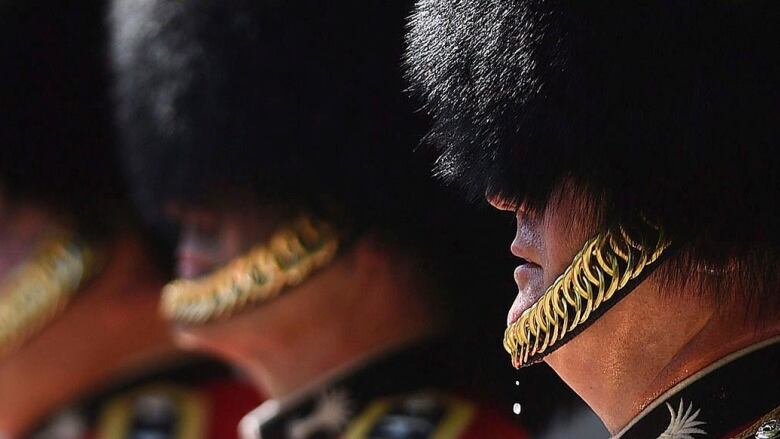
Welcome toTheNational Today newsletter, which takes a closer look at some of the day's most notable stories. Sign up hereand we'll deliver itdirectly to your inbox Monday to Friday.
TODAY:
- As much of the world suffers through an especially hot summer, a new study suggests that climate change is accelerating changes in weather.
- Chinese leaders are vowing to take tough action on the pharmaceutical industry in light of reports that a large number of peoplehave been treated with unsafe or ineffectivevaccines.
- To offset the raisingof tariffs on all mannerof commodities, U.S. President DonaldTrump announced a $12-billion bailout to farmers. Will it clear out the warehouses crammed with surplus meat and cheese?
- Missed The National last night? Watch it here
The world's summer of hell
It has a been a summer of extremes.
Much of the northern hemisphere continues to swelter under unusually hot temperatures, even by the standards of mid-July.
Japan, which has been struggling with a deadly heat wave for more than two weeks, hit a new all-time record of 41.1 C earlier this week about 12 degrees above the normal July high.
In the U.S. southwest, where a "heat dome" has dropped over several states, the National Weather service also recorded a new maximum temperature yesterday when the mercury touched 52.7 C in Death Valley, Calif., shattering a record that had stood for 102 years.
This follows a high of 51.3 C in Ouargla, Algeria, earlier this month, claimed to be the highest temperature ever recorded in Africa.
Records have also been set in the northernmost reaches of Scandinavia this month, with temperatures regularly surpassing 30 C. It's been the hottest July in 260 years in Sweden, and Finland's highs this month have been 12 degrees above the norm, contributing to forest-fire problems in both countries.

The United Kingdom is also sweating through an unusually hot summer, with a forecast high of 34 C tomorrow, and predictions that Friday might break the all-time record of 38.5 C. It explains why the waters of Bracklesham Bay in West Sussex are now warmer than those at Zuma Beach in Malibu, Calif.
According to global data compiled by the U.S. National Oceanic and Atmospheric Administration, the last 30 days have seen 3,173 new daily maximums worldwide, 159 new hottest months and 53 all-time highs.
All of which follows on the heels of 2015, 2016 and 2017 being the three hottest years on record, according to the United Nations World Meteorological Organisation. Last year also had the dubious distinction of being the most costly year on record for severe weather and climate events, as the world suffered through droughts, wildfires, floods and hurricanes.
A new study, released this week, finds that human-related global warming is now accelerating the changes in our weather, causing summer temperatures to spike more quickly than in the past. Climate change is also causing arctic spiders to grow larger, while other researchers are pointing to a link between higher temperatures and increased suicide rates in the U.S. and Mexico.
Meanwhile, wheat and cotton prices are surging, as extended droughts in Russia and Texas threaten those respective crops.
And there are still nine more weeks of summer.
China sticking it to Big Pharma
A burgeoning scandal over unsafe and ineffective vaccines has Chinese leaders vowing to crack down on the country's pharmaceutical industry.
Late last week, health authorities revealed that one of the country's biggest drug makers, Changsheng Bio-tech, had been selling a substandard version of the DPT vaccine used to inoculate children against diphtheria, whooping cough and tetanus. It has since emerged that the same company had been found to be forging data about another vaccine used to protect infants from rabies.
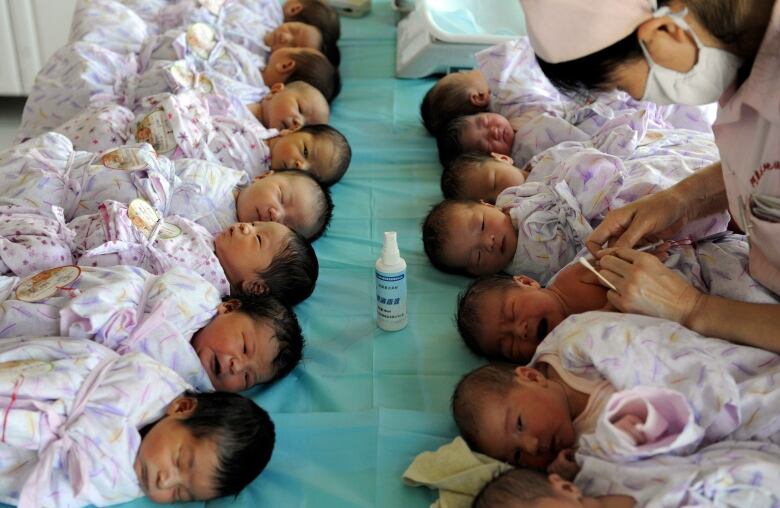
It's not clear how many children were given the ineffective vaccines, but the estimates range from hundreds of thousands to millions. And while there have been no reports of illness, the Chinese public has been expressing outrage about the scandal on social media, with the Mandarin word for vaccine appearing 321 million times on posts and searches on WeChat on Friday alone.
The country's leaders have taken notice.
Over the weekend, Chinese Premier Li Keqiang said that the company had crossed the "moral bottom line" and ordered a full probe into the standard and oversight of all vaccine production.
On Monday, President Xi Jinping called the scandal "hideous and appalling," pledging to clean up the industry and make public the findings of the government investigation.
Yesterday, Chinese state media reported that the chairwoman of Changsheng Bio-tech has been placed in "criminal detention," along with 14 other company executives and employees.
It's not the first time that the quality and safety of Chinese inoculations have been called into question. In March 2016, authorities busted a network of 300 people involved in the trafficking of expired and improperly stored vaccines to hospitals and disease control centres in at least 24 cities and provinces. The illicit trade had been going on for years, and had netted more than $110 million Cdn.
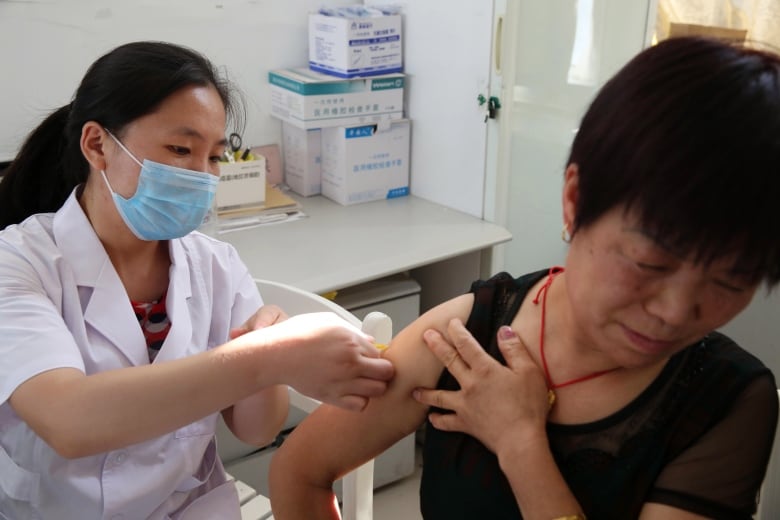
Last fall, another major manufacturer, the Wuhan Institute of Biological Products, was fined for selling 400,000 doses of inferior DPT vaccine to two provinces. Just last week, Zhejiang Huaihai Pharmaceutical issued a U.S. recall for valsartan, a blood and heart drug, after tests detected an impurity linked to cancer.
China, the world's second-largest health care market after the United States, is also the fastest-growing market for pharmaceuticals, with revenues predicted to reach as much as US $175 billion by 2022.
The industry's unchecked growth is a big part of Xi's "Made in China 2025" plan to create the world's most advanced and innovative economy.
- Like this newsletter?Sign upand have it delivered by email.
- You may also like our early-morning newsletter, the Morning Briefstart the day with the news you need in one quick and concise read.Sign up here.
Trump's tariff bailout program
Donald Trump's administration is preparing to spend up to $12 billion US to bail out American farmers who have been directly hurt by the president's global trade wars.
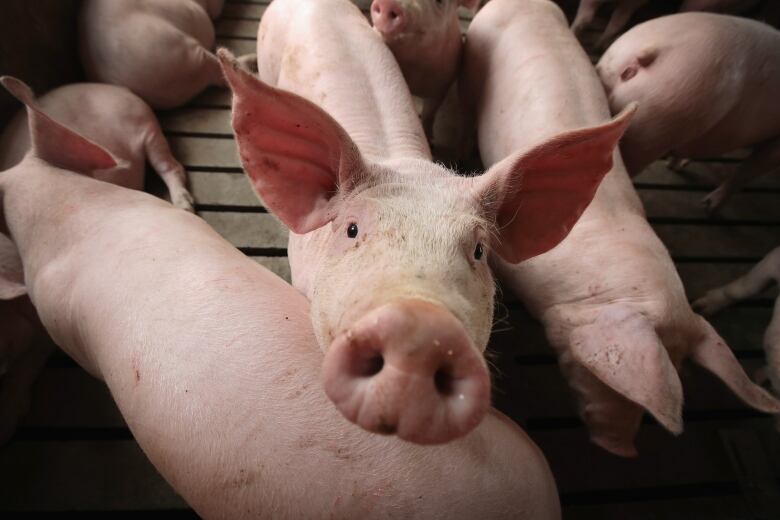
The White House plan, announced yesterday, will see pork, corn, dairy, wheat, cotton and soybean farmers receive compensation payments for slumping prices and sales due to retaliatory tariffs enacted by China, Canada, Mexico and the European Union. There will also be more government money for food banks and community nutrition programs targeted to buying up surplus production, as well as investments in the development of new markets.
"This is a short-term solution that will give President Trump and his administration the time to work on long-term trade deals," Sonny Perdue, the U.S. Agriculture Secretary, told reporters.
Farmers are already feeling the backlash from foreign nations upset over Trump's tariffs on steel, aluminum and, in the case of China, a wide variety of manufactured goods from aircraft tires to LEDs and nuclear reactors.
Pork prices, for example, have fallen sharply as Mexico and China the two biggest foreign markets for U.S. producers slapped on their own duties. Forecasts suggest a much steeper tumble still to come.
And warehouses around the U.S. are now crammed with surplus meat and cheese.

The national cheese stockpile currently stands at 1.39 billion pounds, an all-time high. (Although that has a lot to do with the season, the changing diet of Americans and increased milk production.) The worry, however, is that it will grow even larger, as the trade wars further depress prices. As it is, there are already 4.6 pounds stored away for each and every citizen.
The meat surplus is even larger, with 2.5 billion pounds of beef, pork, chicken and turkey in cold storage another record.
The U.S. government already spends more than $800 million a year buying food for the military, public schools and anti-poverty programs, so it's not clear how much more room there is in the federal pantry.
American pork farmers are now pinning their hopes on a report suggesting that Mexico's new president, Andrs Manuel Lpez Obrador, might be open to concluding a bilateral free-trade deal with Trump, cutting Canada out of the NAFTA process.
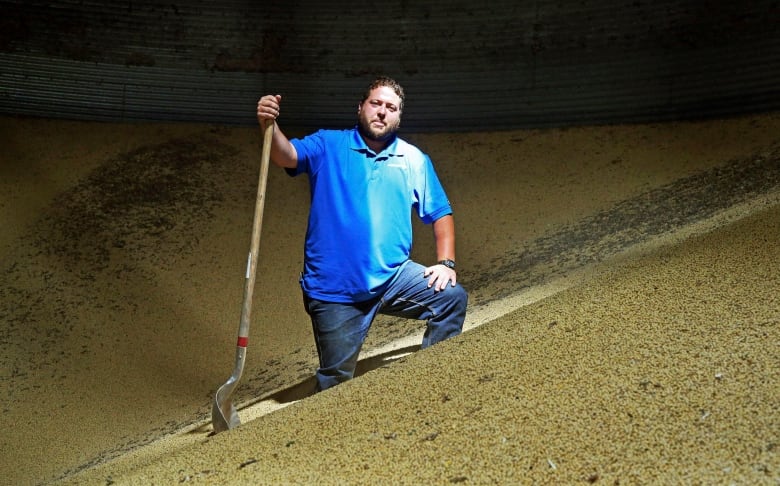
"We don't want payments," Dave Warner, the spokesman for the National Pork Producers Council, said yesterday. "What we really want is the trade disputes to end, and then the tariffs will go away."
Quote of the moment
"In some ways, we didn't want to think it was water but really, there's no other explanation."
- Italian scientist Elena Pettinelli, the co-author of a new study that claims to have detected a 20 square-kilometre lake of liquid water beneath the south pole of Mars.
What The National is reading
- Woman must stay in unhappy marriage, UK court rules (Telegraph)
- Suicide blast kills 31 during Pakistan election voting (CBC)
- Ebola outbreak in DR Congo over, says government (Africanews)
- Air Canada, CIBC, TD and Visa offer to buy Aeroplan (CBC)
- Sergio Marchionne, Italian-Canadian who saved Fiat Chrysler, dead at 66 (CBC)
- Yemeni rebels hit Saudi oil tanker in Red Sea (Arab News)
- Archaeologists lead Western Wall check-up after stone falls (AFP)
- Man who destroyed Trump's star on Hollywood Walk of Fame surrenders (LA Times)
Today in history
July 25, 1984: Mulroney attacks Turner in election debate
Campaign debates are usually pretty staid affairs, full of talking points, canned responses and would-be zingers that die as they exit the marble mouths of politicians. The 1984 federal election tangle was an exception. Progressive Conservative leader Brian Mulroney pressed Prime Minister John Turner on a series of patronage appointments that Pierre Trudeau had made on his way out the door. "I had no option," Turner protests. Mulroney pounces. "You had an option, sir, to say 'No' and you chose to say 'Yes' to the old attitudes and the old stories of the Liberal party You had an option. You could have done better."
Sign up hereand have The National Today newsletter delivered directly to your inbox Monday to Friday.
Please send your ideas, news tips, rantsand compliments tothenationaltoday@cbc.ca.













_(720p).jpg)


 OFFICIAL HD MUSIC VIDEO.jpg)
.jpg)



























































































